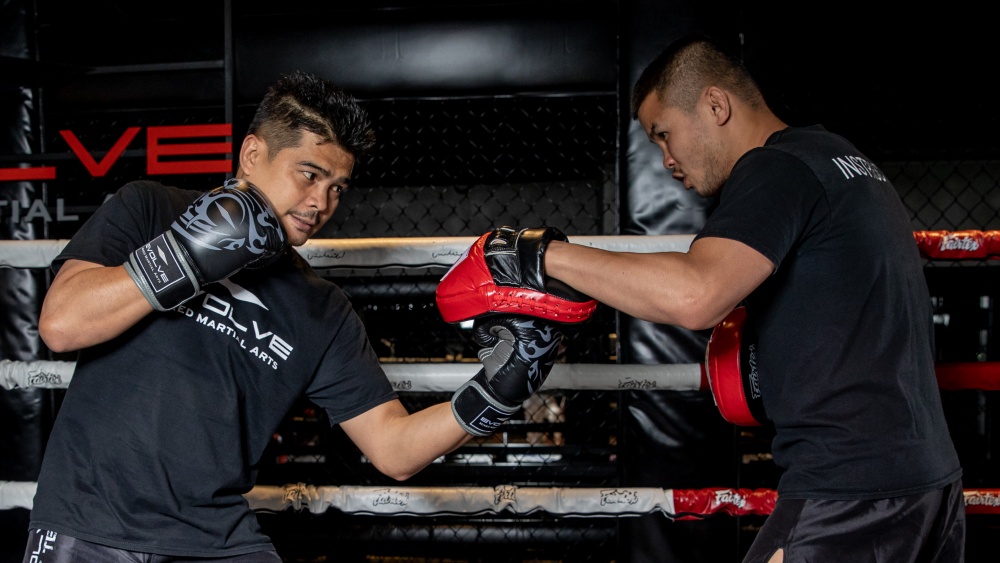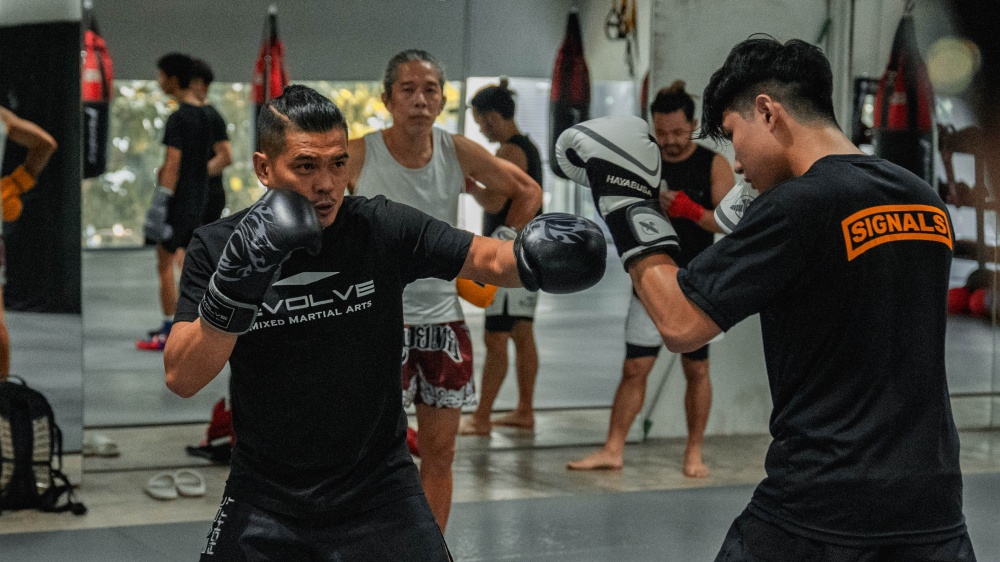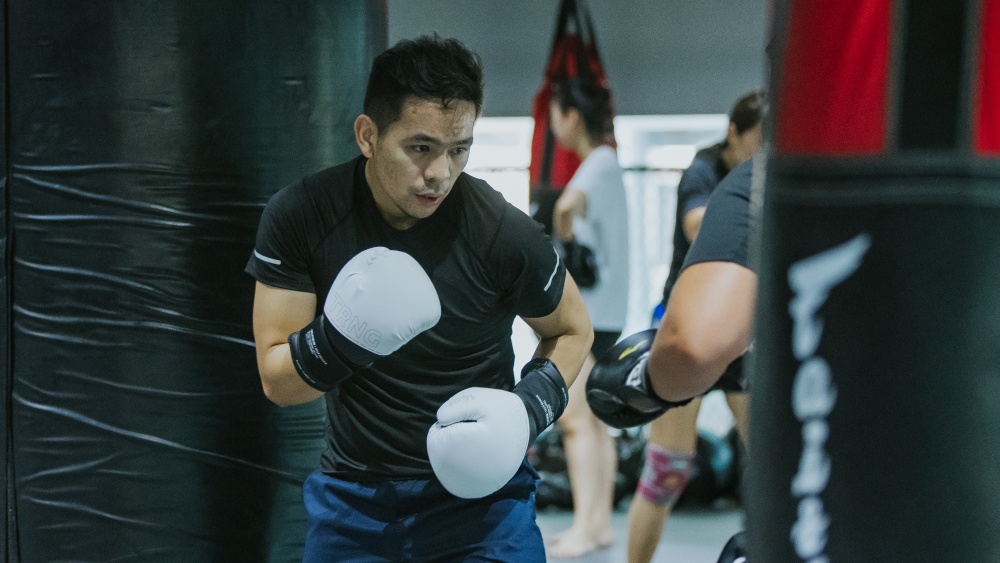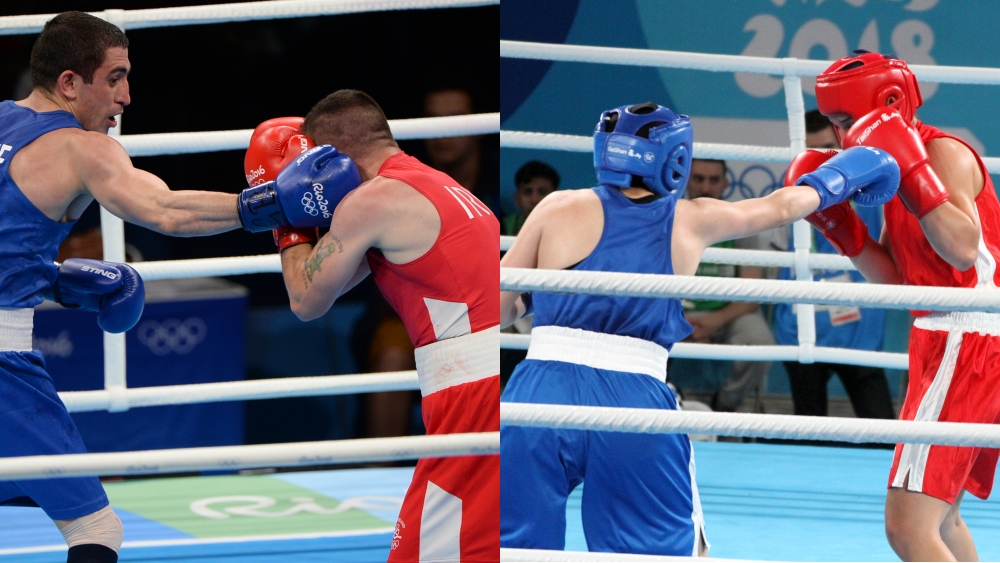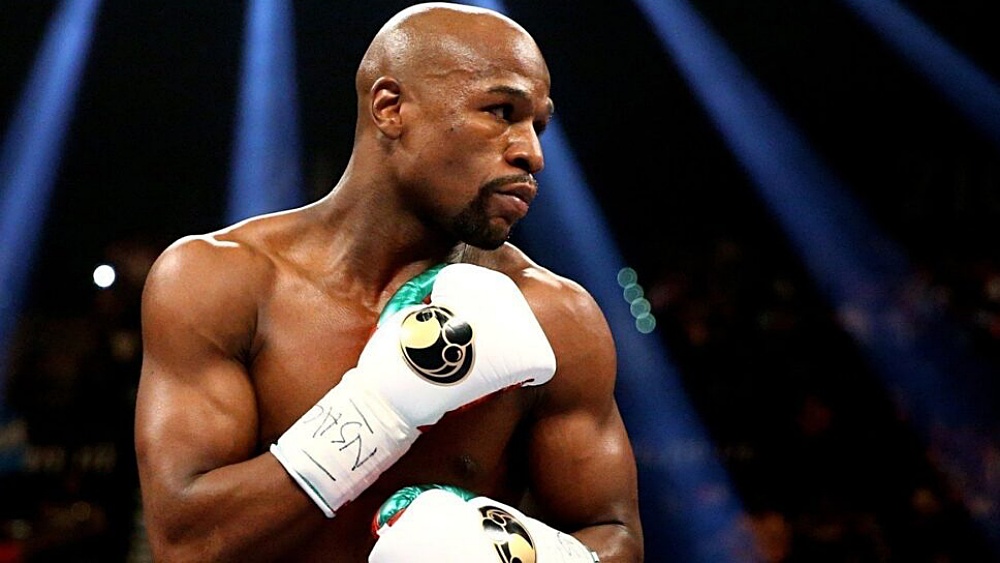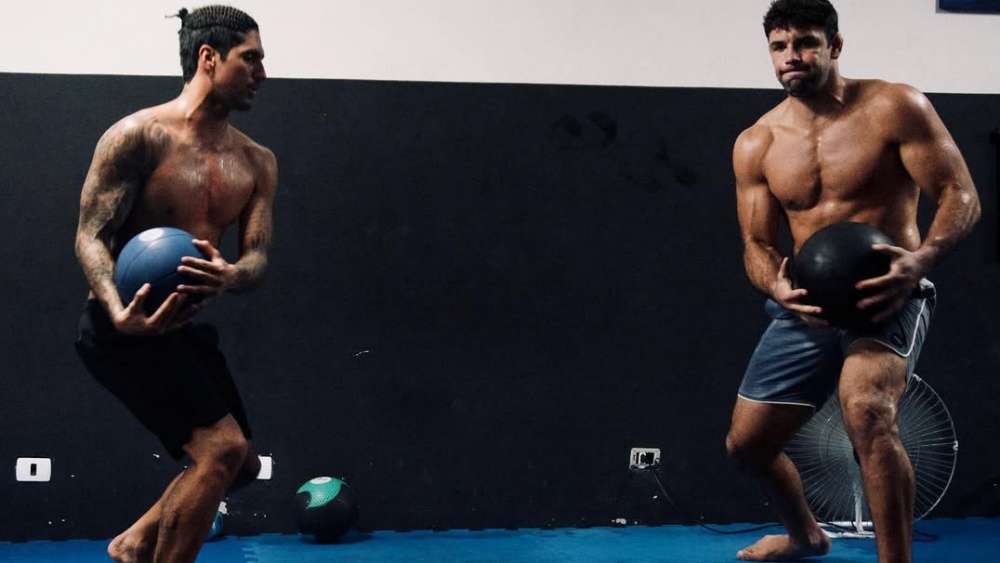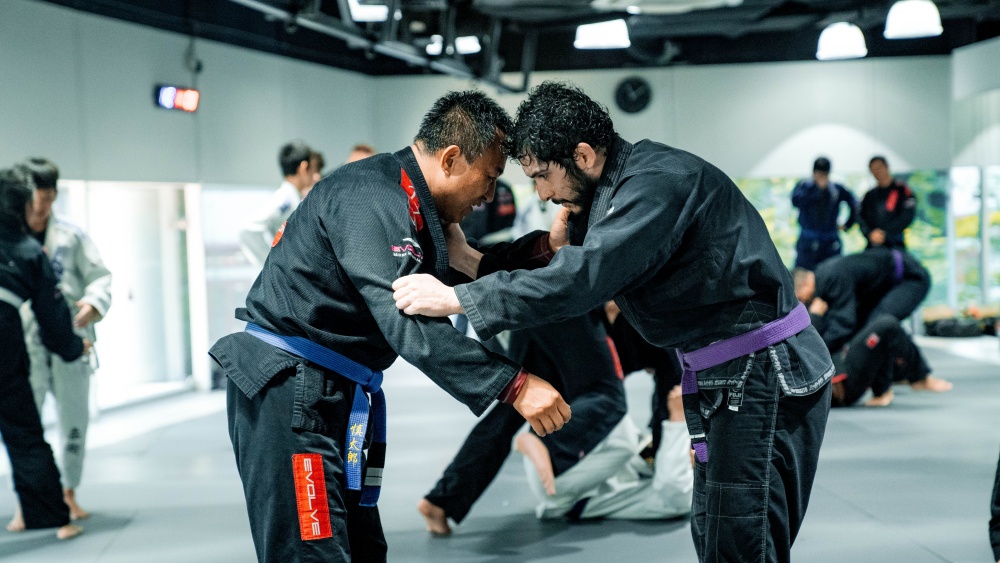Timing is one of the most essential skills you can develop as a boxer. Many of the best boxers in history have excellent timing inside the ring. Timing is what allows you to counter effectively and set traps for opponents. Combine excellent timing with great punch accuracy, and you’ll be more than a handful for anyone you face inside the ring.
Understanding The Importance Of Timing
Timing in boxing refers to your ability to decipher optimal times to throw your punches and go through the mechanics at that exact moment. Improving your timing is often more challenging than any other skill you can develop as a boxer, and it’s one of those skills that often separate beginners from experienced boxers.
The right time to throw a punch changes from one situation to another; timing is your ability to spot the right time and capitalize on it. Floyd Mayweather is an excellent example of a boxer with great timing. One of his favorite counters is the check left hook, which he times to perfection.
The precise timing of his check hooks put opponents like Ricky Hatton away. It also discouraged opponents from swarming him.
There are no shortcuts for improving your timing: it’s one of those skills you build up with experience inside the ring and performing countless timing drills. There’s also a talent aspect to timing since some people seem to be born with better timing than others.
Let’s take a look at some scenarios where timing can give you an advantage over your opponent:
- You can counter a straight shot thrown by an opponent using the same stance by throwing a straight punch while slipping to the outside. Timing is the key to pulling off this counter. You want to start your slip as soon as the straight punch starts coming your way.
- You can counter a hook to your body by throwing an uppercut up the middle using the arm on the side of your body being attacked.
- You can counter an opponent pressuring you headfirst by throwing a check hook. Your opponent’s forward momentum increases the power the punch lands with.
- A well-timed punch right when an opponent shifts their weight forward disrupts their rhythm.
- When fighting an opponent using an opposite stance, you can counter their straight by throwing a hook to the body with your rear hand.
Knowing the right time to throw your punch is the key to coming out ahead in all these scenarios we discussed. Now that we’ve covered how timing works, let’s look at some of the ways you can improve your timing.
Improving The Timing Of Your Punches
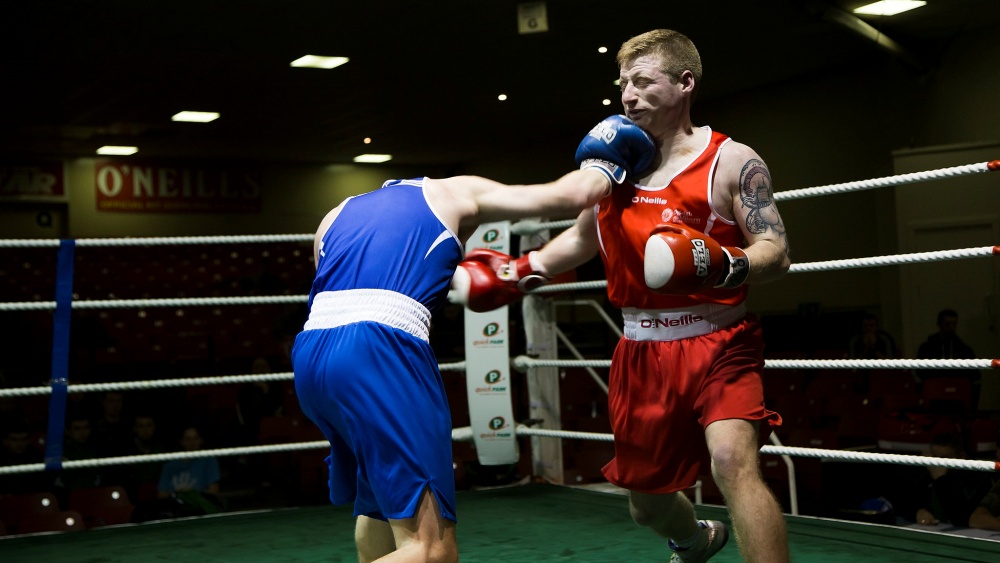
You need to perform timing drills and spar regularly to improve your timing as a boxer. You can passively or actively work on your timing, with the former being the easier option. An example of passively working on your timing includes basic counter-punch drills that help to improve your muscle memory regarding timing. For example, the jab-jab-slip outside-straight drill helps to improve your ability to time an opponent’s straight.
You can also improve your timing by working on a double-end bag or something similar. It forces you to time your punches to move a predictable but fast-moving target.
Active ways to improve your timing include complex counter-punch drills that force you to react and punch a moving target. These drills typically involve working with a partner and adjusting to their movements and punches. The three main things you should focus on when performing advanced timing drills are your rhythm, tempo, and the speed of punches.
1) Speed
The goal of having good timing on your punches is for your attacks to land at precise times. That means you have to adjust your punching speed, so your punches meet their target at the right time. Varying your speed as you work the heavy bag or mitts teaches you how to adjust the speed of your punches, improving your timing
2) Tempo
You should vary the time between your punches when throwing combinations. Many people make the mistake of throwing out combinations as fast as they can, but that often makes your salvos easier to block. Experienced boxers alternate the speed of each punch when throwing combinations. This makes it more challenging for opponents to time you with counters and harder for them to block or evade.
For example, you can lure an opponent into getting sloppy with their defense by throwing the first few punches of a combination at medium speed, then going full speed for the last punch. Throwing the first few punches slower fools them into thinking they have more time than they do to block or evade the last shot.
3) Rhythm
Learning how to read your opponent’s rhythm also helps to improve your timing. Rhythm refers to the flow of a boxer’s punches and movements. Watch one of your training partners sparring for about five minutes, and you’ll start to notice some predictable patterns. These patterns are cues you can use to time your punches.
For example, you might notice a training partner shifts their weight forward before throwing a jab; that’s your cue to slip to the outside and counter with a straight punch. Learning how to read rhythm is the most challenging thing you have to work on when trying to improve your timing since most beginners are typically preoccupied with what they’re doing, not what their opponent is doing. Learn to study opponents while you’re in the ring with them, and your timing will naturally improve.
It’s A Skill That Separates The Best From The Rest
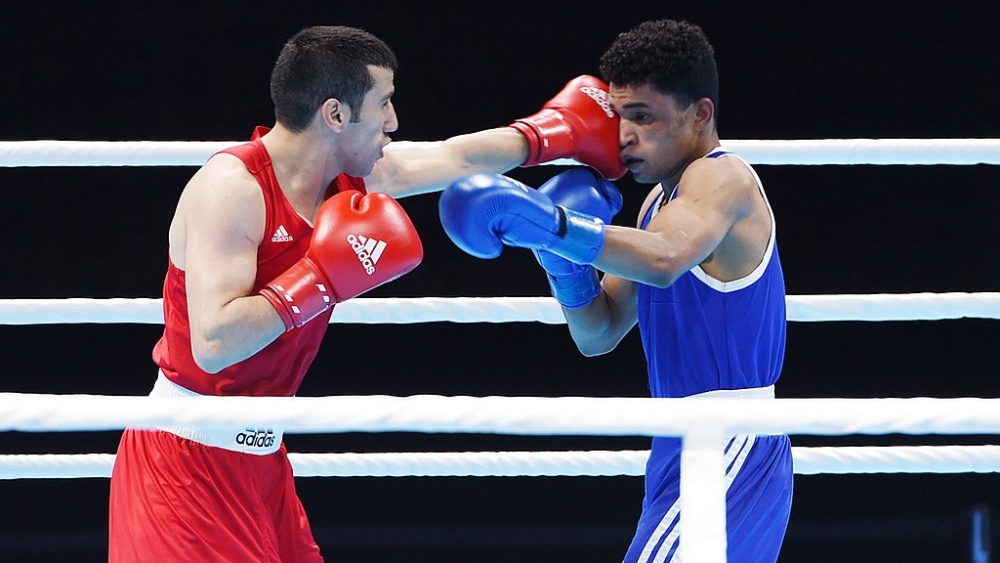
Timing is one of those skills you’ll start to use all the time once you master it. It can be the sole differentiator when you go against a fast or defensively sound opponent. Your timing can be used to disrupt their rhythm, and it opens up their defense.
You can even use your timing to close the distance against an opponent who prefers to fight on the outside by timing their footwork or punches. That way, you can move in on them once they plant their feet.
You may also like:
